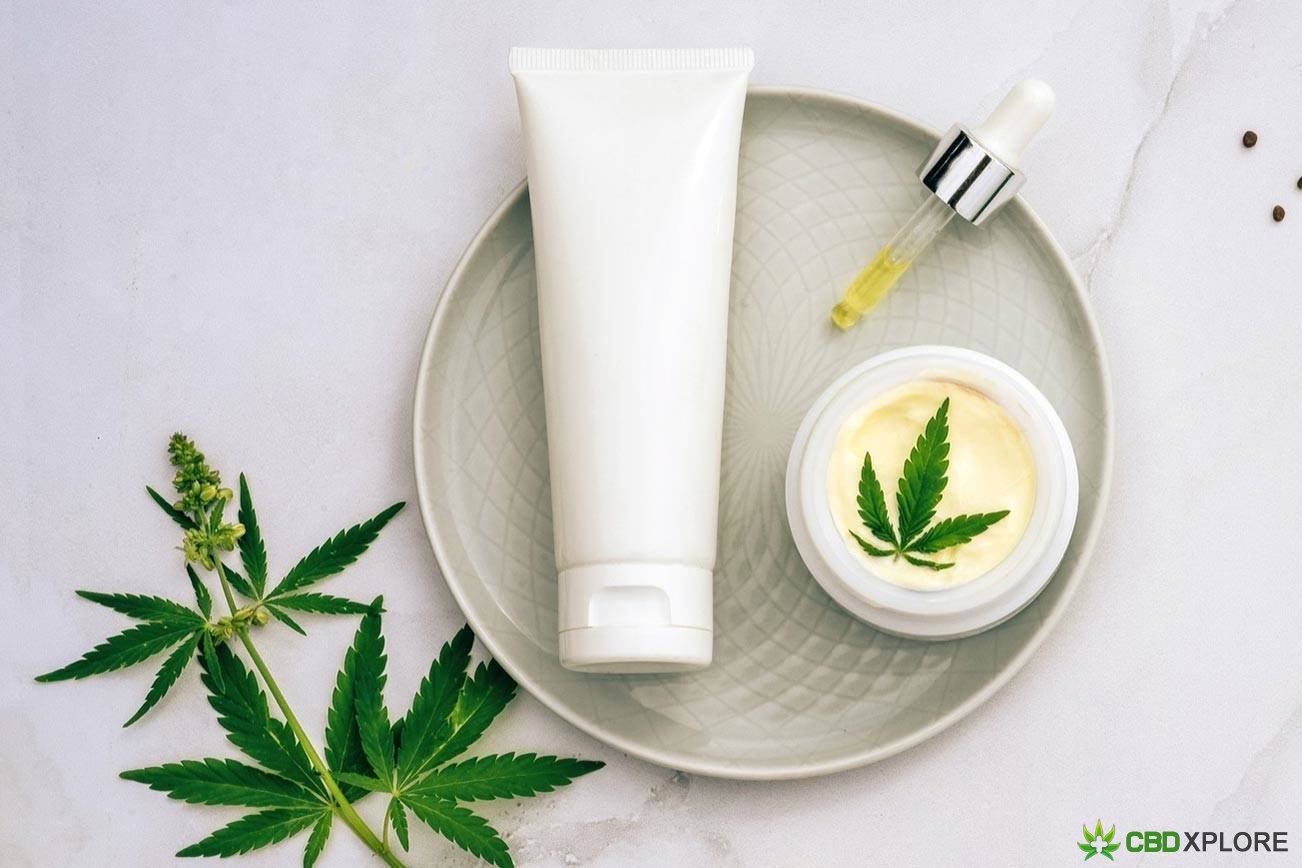CBD for Inflammation: A Natural Alternative to Over-the-Counter Drugs
In this article, we will explore how CBD for inflammation works, how it compares to traditional over-the-counter drugs, its benefits, potential side effects.

In today’s health-conscious society, many individuals are turning away from synthetic medications and looking for natural remedies to manage chronic pain, swelling, and other inflammatory conditions. One standout solution gaining momentum is CBD for inflammation. Cannabidiol, commonly known as CBD, is a non-psychoactive compound extracted from the hemp plant. Unlike THC, CBD doesn’t produce a “high,” but it does offer a variety of therapeutic benefits, including potential anti-inflammatory properties.
In this article, we will explore how CBD for inflammation works, how it compares to traditional over-the-counter (OTC) drugs, its benefits, potential side effects, and best practices for incorporating CBD into your wellness routine.
Explore the Contents
- 1 What is Inflammation?
- 2 The Science Behind CBD and Inflammation
- 3 CBD vs. Over-the-Counter Anti-Inflammatory Drugs
- 4 Health Conditions Where CBD for Inflammation Shows Promise
- 5 How to Use CBD for Inflammation
- 6 Choosing the Right CBD Product
- 7 Potential Side Effects and Safety Concerns
- 8 The Future of CBD as a Natural Anti-Inflammatory
- 9 Conclusion
What is Inflammation?
Before diving into CBD’s role, it’s essential to understand what inflammation is. Inflammation is a natural immune response that helps the body fight off infections, injuries, and toxins. However, chronic inflammation can lead to several health issues such as arthritis, cardiovascular disease, autoimmune disorders, and even neurodegenerative conditions like Alzheimer’s.
People typically rely on over-the-counter anti-inflammatory drugs (NSAIDs) such as ibuprofen, aspirin, or naproxen to relieve pain and swelling. While these medications can be effective in the short term, long-term use may contribute to side effects like gastrointestinal issues, kidney damage, and increased cardiovascular risks. That’s where the interest in natural anti-inflammatory alternatives, like CBD, comes in.
The Science Behind CBD and Inflammation
CBD interacts with the body’s endocannabinoid system (ECS), a complex cell-signaling network that plays a crucial role in regulating physiological processes such as pain, immune function, mood, and inflammation. The ECS has two primary receptors—CB1 and CB2.
- CB1 receptors are primarily found in the brain and central nervous system.
- CB2 receptors are more prevalent in peripheral organs and immune cells.
CBD is thought to indirectly influence these receptors, promoting a state of homeostasis and reducing inflammatory responses. In several studies, CBD has shown to modulate cytokine production (proteins that mediate and regulate immunity and inflammation) and inhibit inflammatory mediators such as TNF-alpha and interleukins.
A 2020 review published in Frontiers in Pharmacology suggests that CBD for inflammation can be effective in alleviating symptoms in conditions like arthritis, multiple sclerosis, and inflammatory bowel disease.
CBD vs. Over-the-Counter Anti-Inflammatory Drugs
1. Mechanism of Action
- OTC NSAIDs work by inhibiting cyclooxygenase (COX) enzymes, which are involved in the production of prostaglandins—lipid compounds that cause inflammation, fever, and pain.
- CBD, on the other hand, impacts a wider range of receptors and pathways, including adenosine receptors and TRPV1 channels (which are associated with pain and inflammation), without directly affecting COX enzymes.
2. Risk of Side Effects
- Long-term use of NSAIDs can lead to serious side effects like gastrointestinal bleeding, ulcers, liver dysfunction, and kidney damage.
- CBD is generally well-tolerated, with mild side effects such as dry mouth, drowsiness, and changes in appetite or weight reported in some cases. Importantly, CBD does not carry the same gastrointestinal or cardiovascular risks associated with NSAIDs.
3. Addiction and Dependency
- Unlike opioids, which are sometimes prescribed for inflammatory pain, CBD is non-addictive and non-psychoactive, making it a safer option for long-term management of chronic inflammation.
4. Overall Efficacy
- While NSAIDs provide fast-acting relief, CBD may offer a more holistic approach by addressing both the symptoms and the underlying inflammatory processes through immune system modulation.
Health Conditions Where CBD for Inflammation Shows Promise
1. Arthritis
Several clinical and preclinical studies have found that CBD for inflammation may help reduce joint pain and swelling associated with arthritis. A study published in the European Journal of Pain demonstrated that topical CBD application could reduce pain and inflammation in animal models of arthritis.
2. Inflammatory Bowel Disease (IBD)
Inflammatory conditions like Crohn’s disease and ulcerative colitis may benefit from CBD’s immune-modulating properties. Research suggests that CBD for inflammation in IBD patients may reduce gut inflammation and improve gastrointestinal function.
3. Muscle Recovery and Sports Injuries
Athletes often experience muscle inflammation due to strenuous exercise or injuries. CBD’s anti-inflammatory and analgesic properties may speed up recovery time and reduce soreness without the side effects linked to NSAIDs.
4. Skin Inflammation
CBD-infused creams and topicals are becoming popular in managing conditions like eczema, psoriasis, and acne. These products may reduce localized inflammation and soothe irritated skin.
5. Neuroinflammatory Disorders
Emerging studies indicate that CBD may also help reduce neuroinflammation, which is linked to conditions like multiple sclerosis and Alzheimer’s disease.
How to Use CBD for Inflammation
1. CBD Oil or Tinctures
CBD oils are among the most common and versatile products. They can be taken sublingually (under the tongue) for faster absorption or added to food and drinks. Oils provide precise dosage control and a quick onset of effects.
2. CBD Capsules or Edibles
For those who prefer convenience, capsules and edibles like gummies are great options. However, they pass through the digestive system, which may slow down the onset of relief compared to oils.
3. CBD Topicals
Topical creams, salves, and balms infused with CBD are applied directly to the skin, targeting localized inflammation in areas like joints and muscles.
4. CBD Vapes
Vaping CBD allows for fast-acting relief but is less commonly recommended due to potential respiratory concerns.
Choosing the Right CBD Product
When selecting a CBD for inflammation product, keep the following factors in mind:
- Full-spectrum vs. Broad-spectrum vs. Isolate: Full-spectrum products contain all cannabinoids, including trace amounts of THC, which may enhance the anti-inflammatory effects through the “entourage effect.” Broad-spectrum products exclude THC but retain other beneficial compounds. CBD isolate is pure CBD without other cannabinoids.
- Third-party Testing: Always opt for products tested by independent labs to verify purity, potency, and absence of contaminants.
- Dosage: Start with a low dose and gradually increase until desired effects are achieved. Consult a healthcare professional for personalized guidance.
Potential Side Effects and Safety Concerns
While CBD for inflammation is generally safe, it’s essential to be aware of possible side effects:
- Fatigue or drowsiness
- Dry mouth
- Diarrhea
- Appetite changes
CBD can also interact with certain medications, particularly blood thinners or drugs metabolized by the liver’s cytochrome P450 enzymes. Always consult your physician before starting CBD, especially if you’re on other medications.
The Future of CBD as a Natural Anti-Inflammatory
The growing body of scientific evidence suggests that CBD for inflammation is a promising natural alternative to OTC drugs. As more research unfolds, we may see CBD being integrated into conventional medical treatments for inflammatory conditions.
Additionally, consumer interest is steadily rising as people seek holistic health solutions that minimize dependency on pharmaceuticals. The CBD market is expanding with innovative products ranging from skincare formulations to fitness recovery supplements—all aimed at reducing inflammation naturally.
Conclusion
The rise in popularity of CBD for inflammation reflects a broader trend toward natural wellness solutions. Compared to over-the-counter anti-inflammatory drugs, CBD offers a gentler approach with fewer side effects and a wider array of benefits for chronic and acute inflammatory conditions.
Whether you’re an athlete looking to recover faster, someone managing arthritis pain, or just exploring ways to reduce systemic inflammation naturally, CBD could be a valuable addition to your wellness toolkit.
Remember, quality matters. Choose reputable brands, consult healthcare providers, and listen to your body as you explore the world of CBD for inflammation.





